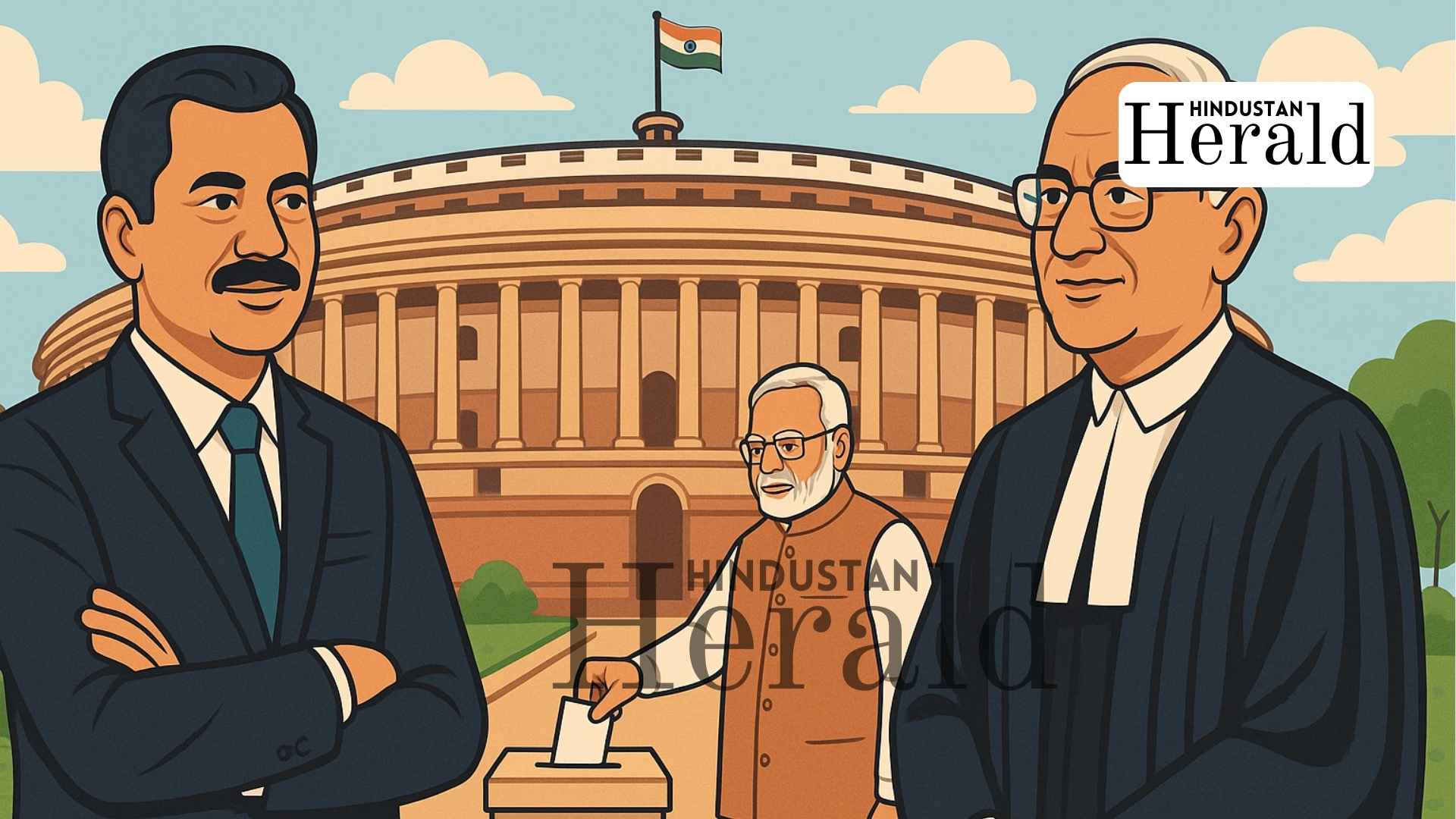New Delhi, September 9: Parliament had a different kind of buzz this morning. MPs in crisp whites and bandhgalas shuffled into the hall, ballot papers in hand, as voting began to choose India’s next Vice President. The sudden vacancy left by Jagdeep Dhankhar’s resignation in July has turned what might have been a routine exercise into a politically loaded moment.
The contest itself, though, is hardly in doubt. Prime Minister Narendra Modi was the first to walk in and drop his ballot, a reminder of where the weight of power lies. Voting started at 10 AM and will run till late afternoon before the counting begins. By tonight, Delhi will have its answer.
The Line-Up
On paper, it’s a two-way fight. The NDA has put forward CP Radhakrishnan, the Maharashtra Governor and an old BJP loyalist from Tamil Nadu. For the ruling coalition, his candidature serves two purposes reward a party veteran and keep signalling towards the south, where the BJP is still searching for deeper roots.
Against him stands Justice B Sudershan Reddy, the opposition INDIA bloc’s nominee. A retired Supreme Court judge, Reddy’s name is meant to underline the need for an impartial, constitutional presence in the Rajya Sabha chair. The opposition knows it doesn’t have the numbers but is keen to show it still has a pulse.
The arithmetic is brutal. The NDA holds the advantage and, barring a shock, Radhakrishnan should walk away with the post.
Opposition Finds Discipline
Perhaps aware of the inevitable, the opposition tried something unusual a rehearsal. MPs gathered yesterday for a mock voting drill, ensuring everyone knew the procedure and, more importantly, that they stood together.
Some joked it was to avoid “pressing the wrong button” as often happens in electronic divisions. But the subtext was obvious an alliance long accused of infighting wanted to prove, at least symbolically, that it could act as one.
Who Stayed Away
Not everyone turned up. The BRS, BJD, and Shiromani Akali Dal all skipped today’s ballot. Their absence trims the voter pool but doesn’t change the outcome.
The BRS explained its boycott bluntly Telangana’s farmers are facing urea shortages, and the party said it couldn’t justify joining “Delhi rituals” while the crisis unfolded at home. It’s a reminder of how regional priorities often overtake national theatre.
Why It Still Matters
A Vice President’s election rarely draws such attention, but the role isn’t decorative. The VP doubles as Chairperson of the Rajya Sabha, a chamber where tempers frequently boil over and legislation can stall. Having an ally in that chair is invaluable for the government.
For the opposition, even a heavy loss can carry weight if it shows discipline and intent. The INDIA bloc, bruised in Parliament for months, is banking on this as a show of seriousness.
The Final Stretch
Voting closes at 5 PM. Ballots will be counted immediately after, and by nightfall, the country will know who presides over the Upper House for the next five years.
Nobody expects a nail-biter. But as always in Indian politics, what matters is not just who wins, but how the margins are read, who abstained, and what signals get sent for the battles waiting around the corner.
Stay ahead with Hindustan Herald — bringing you trusted news, sharp analysis, and stories that matter across Politics, Business, Technology, Sports, Entertainment, Lifestyle, and more.
Connect with us on Facebook, Instagram, X (Twitter), LinkedIn, YouTube, and join our Telegram community @hindustanherald for real-time updates.
Covers Indian politics, governance, and policy developments with over a decade of experience in political reporting.






